
Video of the Rwandan experience with developing and deploying a UNESCO ICT CFT / OER teacher training course
- Subject:
- Elementary Education
- Material Type:
- Case Study
- Author:
- UNESCO | KFIT | REB
- Date Added:
- 07/11/2018
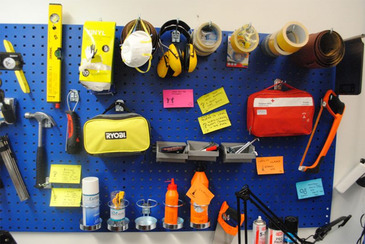

Video of the Rwandan experience with developing and deploying a UNESCO ICT CFT / OER teacher training course
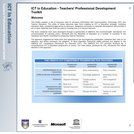
This toolkit contains a set of resources used to introduce Information and Communication Technology (ICT) into Teacher Education. The utility of these resources span from creating an ICT in Education strategy, collecting education data, considering approaches to advocacy, designing curriculum to materials development and provides a set of open materials that could be used for training new or in service teachers.

Developing a course, and associated materials, to support professional development can often be a costly enterprise. Designers and developers need to consider curriculum design, materials development, quality assurance, platform customisation and evaluation. Following this process step by step is often protracted and costly. The ADDIE model of instructional design, a popular and often cited ideal approach to creating courseware, suggests that analysis of needs, courseware design and development, implementation and course evaluation is required by any entity bent on creating effective courses.
In contrast to this mindset, however, there is evidence that a collaborative-shared approach to instructional design challenges the ADDIE model’s assumption that each step needs to be done in-house. Since 2011, several Teacher ICT Integration professional development initiatives around the globe have demonstrated that burdens in both design and development phases can be shared, shortening the time required to design courses and develop the accompanying resources. This approach also is more cost effective than typical ventures.
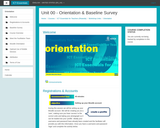
An orientation course for the rwandan ICT Essentials for Teachers Course that includes a baseline survey required to ascertain e-readiness of the participants.

The latest version of the UNESCI ICT Competency Framework for Teachers published in 2018
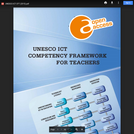
UNESCO’s Framework emphasizes that it is not enough for teachers to have ICT competencies and be able to teach them to their students. Teachers need to be able to help the students become collaborative, problemsolving, creative learners through using ICT so they will be eff ective citizens and members of the workforce. The Framework therefore addresses all aspects of a teacher’s work:
Understanding ICT in Education
Curriculum and Assessment
Pedagogy
ICT
Organisation & Administration
Teacher Professional Learing
The Framework is arranged in three diff erent approaches to teaching (three successive stages of a teacher’s development). The first is Technology Literacy, enabling students to use ICT in order to learn more effi ciently. The second is Knowledge Deepening, enabling students to acquire in-depth knowledge of their school subjects and apply it to complex, real-world problems. The third is Knowledge Creation, enabling students, citizens and the workforce they become, to create the new knowledge required for more harmonious, fulfi lling and prosperous societies.
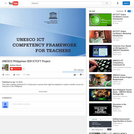
This video outlines potential ICT in Education courses that might be adapted to create a similar course for Teachers in the Philippines